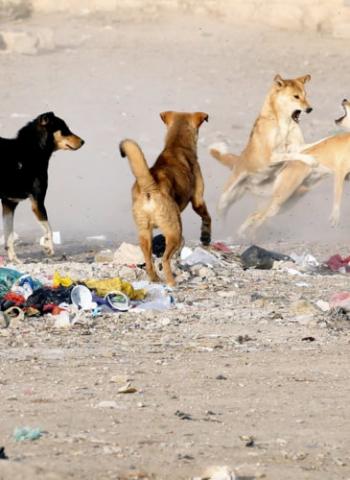High Houthi leader announces freeze and stop military operations' in Yemen


SANAA, Yemen — A senior leader of Yemen's Shiite rebels said on Monday that the group will halt rocket fire into Saudi Arabia for the sake of peace efforts, answering a key Saudi demand in the first public sign of hope for the latest push to stop the bloodshed and civilian suffering in the Arab world's poorest country.
For the past three years, a U.S.-backed, Saudi-led coalition has been waging war against the rebels, known as Houthis, to restore Yemen's internationally recognized government to power. The rebels say they had been excluded from that government and took power to rectify historic grievances against central authority.
The rebel leader, Mohammed Ali al-Houthi, said in a statement to journalists that the Iran-backed rebels ordered the cessation of rocket and drone attacks on the Saudis and forces loyal to coalition member the United Arab Emirates at the request of U.N. special envoy Martin Griffiths.
"We are ready to freeze and stop military operations on all fronts in order to achieve peace," al-Houthi said, mentioning the rockets specifically as part of a longer statement in which he blamed the United States for being the main driver for what he called "the aggression" against Yemen.
The rebel leader, Mohammed Ali al-Houthi, said in a statement to journalists that the Iran-backed rebels ordered the cessation of rocket and drone attacks on the Saudis and forces loyal to coalition member the United Arab Emirates at the request of U.N. special envoy Martin Griffiths.
"We are ready to freeze and stop military operations on all fronts in order to achieve peace," al-Houthi said, mentioning the rockets specifically as part of a longer statement in which he blamed the United States for being the main driver for what he called "the aggression" against Yemen.
emen's civil war began in the wake of its Arab Spring uprising, when the Houthis swept down from their northern stronghold and took the capital, Sanaa, in 2014, with the help of troops loyal to Yemen's former strongman, Ali Abdullah Saleh. The government fled the following year, and Saudi Arabia, citing fears that its nemesis Iran was using the Shiite leanings of the revolt to make inroads on the Arabian Peninsula, began launching airstrikes against the rebels.
Riyadh formed a coalition of Sunni Arab states, including the UAE, Kuwait, Egypt and Sudan, and launched ground assaults on several fronts but failed to take the capital. After some major setbacks, it began outsourcing the ground fighting to local troops, including a group trained by the UAE in the south.
The latest Saudi-led offensive, which began last summer, has been focused on capturing the key rebel-held port city of Hodeida, through which almost all of Yemen's food and desperately needed humanitarian aid flows. NBC News

Paris — The French humanitarian organization Acted announced that it has delivered cash assistance to nearly 89,000 people affected by displa…

Sana’a — Fuel and food imports into ports under the control of Yemen’s Houthi movement on the Red Sea have continued to fall for…

ADEN — Yemen Airways, the country’s national carrier, announced it will resume flights between Aden and Abu Dhabi beginning in January…